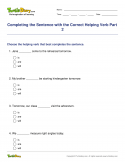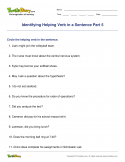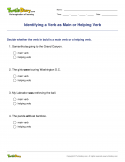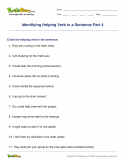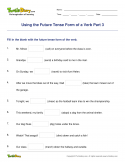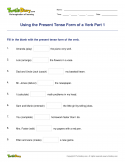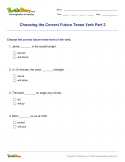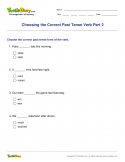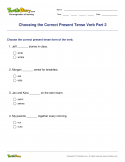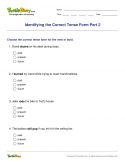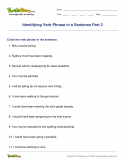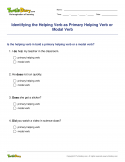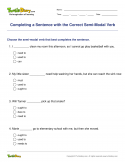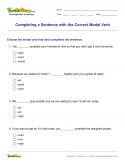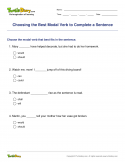Login as parent/teacher to assign this.
Showing 1-171 of 171 results
Select:
How do I decide if a verb is past, present, or future?
To decide the tense of a verb, consider when the action is happening. If it's already happening, the verb is in the past tense. If it is happening right now, the verb is in the present tense. If it is going to happen in the future, the verb is present tense.
What's the difference between present perfect and present perfect progressive?
The present perfect and present perfect progressive tenses both use the word have before the specific action. However, present perfect tense refers to an action that is complete or to a change that has occurred. Present perfect progressive tense refers to an action that is still occurring in the present.
How do I use irregular verbs with different verb tenses?
TurtleDiary.com offers creative online games with compound words to help students to increase their cognitive abilities in language learning. Beginning at the kindergarten level and moving up, our compound word online games offer a variety of fun learning experiences and help students increase their knowledge one step at a time.Irregular verbs never follow the verb conjugation patterns of regular verbs, such as adding -ed to the past tense. When using irregular verbs in the 12 different tenses, it is important to always follow the rules of that specific verb. You must also remember that some verbs have different past tenses, such as flew and flown. (I flew in the plane. I had flown to California.)
When should I teach verb tenses?
Native English speakers usually don't need to learn verb tenses as they learn English, because they are able to discern which verb tense sounds correct in a given sentence. Many state standards mandate that verb tenses are taught starting between 3rd-5th grade, with more complex tenses taught in higher grade levels.

